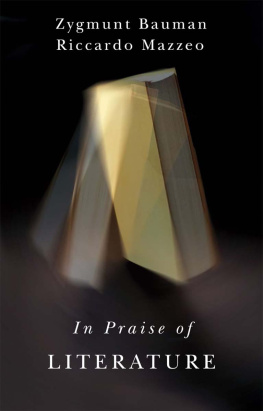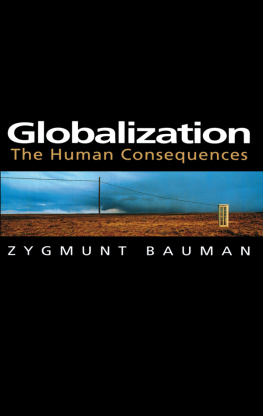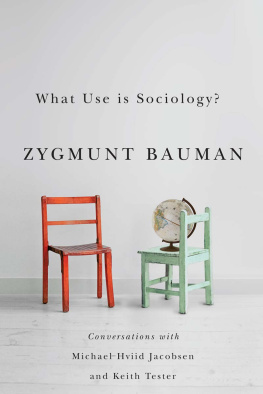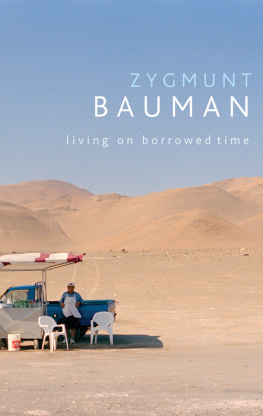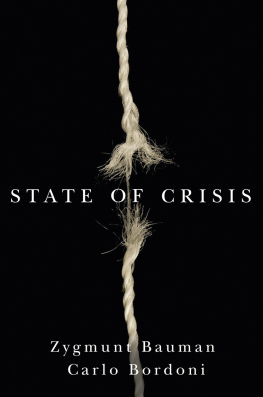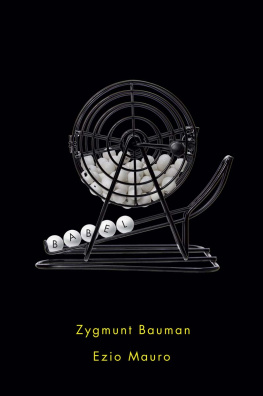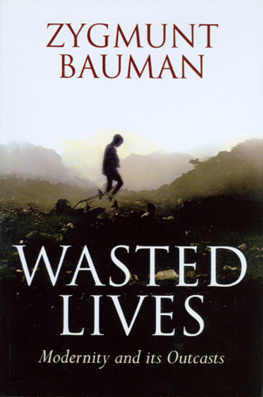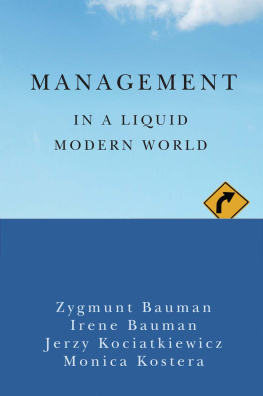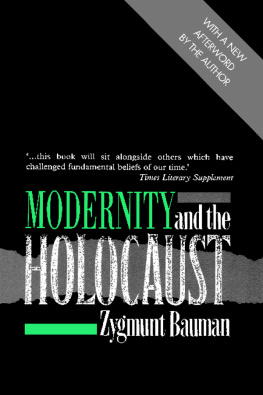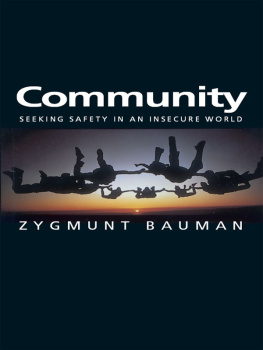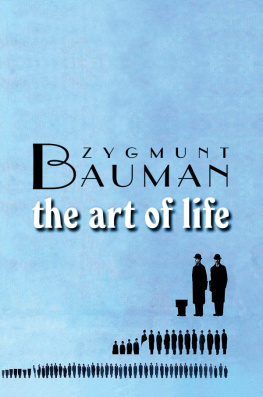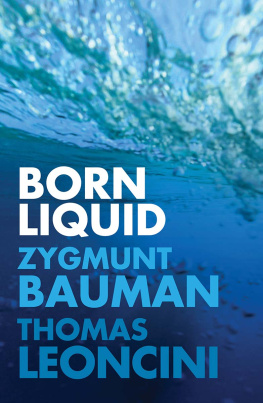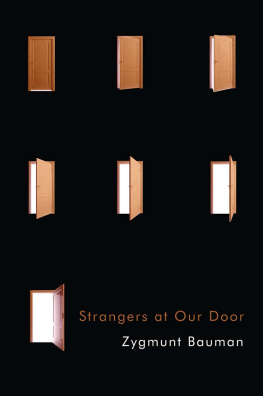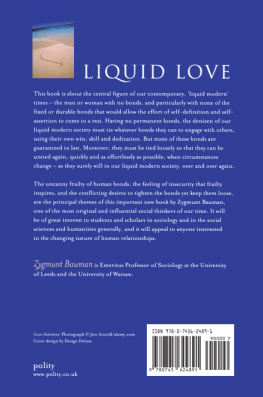Bauman Zygmunt - In Praise of Literature
Here you can read online Bauman Zygmunt - In Praise of Literature full text of the book (entire story) in english for free. Download pdf and epub, get meaning, cover and reviews about this ebook. City: New York, year: 2016, publisher: Polity Press;John Wiley & Sons, genre: Romance novel. Description of the work, (preface) as well as reviews are available. Best literature library LitArk.com created for fans of good reading and offers a wide selection of genres:
Romance novel
Science fiction
Adventure
Detective
Science
History
Home and family
Prose
Art
Politics
Computer
Non-fiction
Religion
Business
Children
Humor
Choose a favorite category and find really read worthwhile books. Enjoy immersion in the world of imagination, feel the emotions of the characters or learn something new for yourself, make an fascinating discovery.
- Book:In Praise of Literature
- Author:
- Publisher:Polity Press;John Wiley & Sons
- Genre:
- Year:2016
- City:New York
- Rating:4 / 5
- Favourites:Add to favourites
- Your mark:
- 80
- 1
- 2
- 3
- 4
- 5
In Praise of Literature: summary, description and annotation
We offer to read an annotation, description, summary or preface (depends on what the author of the book "In Praise of Literature" wrote himself). If you haven't found the necessary information about the book — write in the comments, we will try to find it.
In Praise of Literature — read online for free the complete book (whole text) full work
Below is the text of the book, divided by pages. System saving the place of the last page read, allows you to conveniently read the book "In Praise of Literature" online for free, without having to search again every time where you left off. Put a bookmark, and you can go to the page where you finished reading at any time.
Font size:
Interval:
Bookmark:

Zygmunt Bauman and Riccardo Mazzeo
polity
Copyright Zygmunt Bauman, Riccardo Mazzeo 2016
The right of Zygmunt Bauman, Riccardo Mazzeo to be identified as Authors of this Work has been asserted in accordance with the UK Copyright, Designs and Patents Act 1988.
First published in 2016 by Polity Press
Polity Press
65 Bridge Street
Cambridge CB2 1UR, UK
Polity Press
350 Main Street
Malden, MA 02148, USA
All rights reserved. Except for the quotation of short passages for the purpose of criticism and review, no part of this publication may be reproduced, stored in a retrieval system, or transmitted, in any form or by any means, electronic, mechanical, photocopying, recording or otherwise, without the prior permission of the publisher.
ISBN-13: 978-1-5095-0272-1
A catalogue record for this book is available from the British Library.
Names: Bauman, Zygmunt, 1925- author. | Mazzeo, Riccardo.
Title: In praise of literature / Zygmunt Bauman, Riccardo Mazzeo.
Description: Cambridge, U.K. ; Malden, MA : Polity, 2015. | Includes bibliographical references and index.
Identifiers: LCCN 2015025860| ISBN 9781509502684 (hardback) | ISBN 9781509502691 (paperback)
Subjects: LCSH: Literature and society. | Literature--History and criticism--Theory, etc. | BISAC: LITERARY CRITICISM / Semiotics & Theory. Classification: LCC PN51 B325 2016 | DDC 809/.933552--dc23 LC record available at http://lccn.loc.gov/2015025860
The publisher has used its best endeavours to ensure that the URLs for external websites referred to in this book are correct and active at the time of going to press. However, the publisher has no responsibility for the websites and can make no guarantee that a site will remain live or that the content is or will remain appropriate.
Every effort has been made to trace all copyright holders, but if any have been inadvertently overlooked the publisher will be pleased to include any necessary credits in any subsequent reprint or edition.
For further information on Polity, visit our website: politybooks.com
The phrase, the world wants to be deceived, has become truer than had ever been intended. People are not only, as the saying goes, falling for the swindle; if it guarantees them even the most fleeting gratification they desire a deception which is nonetheless transparent to them. They force their eyes shut and voice approval, in a kind of self-loathing, for what is meted out to them, knowing fully the purpose for which it is manufactured. Without admitting it they sense that their lives would be completely intolerable as soon as they no longer clung to satisfactions which are none at all.
Theodor W. Adorno, Culture Industry Reconsidered, trans.Anson G. Rabinbach, in The Culture Industry, Routledge 1991, p.89
The official practise of humanism is completed by accusing everything truly human and in no way official of inhumanity. For criticism takes from man his meagre spiritual possessions, removing the veil which he himself looks upon as benevolent. The anger aroused in him by the unveiled image is diverted to those who tear the veil, in keeping with the hypothesis of Helvetius that truth never damages anyone except him who utters it.
Theodor W. Adorno, Culture and Administration, trans. Wes Blomster, Telos 37, 1978, p. 106
The simple fact must be recognized that that which is specifically cultural is that which is removed from the naked necessity of life. [...] Culture that which goes beyond the system of self-preservation of the species. [...] The sacrosanct irrationality of culture.
Ibid., p. 94, 100, 97
(M)aterial reality is called the world of exchange value [whereas culture] refuses to accept the domination of that world.
Theodor W. Adorno, Minima Moralia, trans. E. F. N. Jephcott, Verso 1974, p. 44
The subject-matter of our conversation-in-letters, reproduced below, is the notoriously (and according to some people essentially) contested issue: the relation between literature (and arts in general) and sociology (or, more generally, a branch of the humanities that claim a scientific status).
Both literature, together with the rest of the arts, and sociology are part and parcel of culture; the above-quoted Theodor W. Adornos statements and assessments of the nature and role of culture as going beyond the system of self-preservation by tearing the veil that cultures prospective beneficiaries may self-deceive into looking upon as benevolent apply to both in equal measure. All the same, it is our view that literature and sociology are linked to each other more intimately and cooperate with each other more closely than is common among the various types of cultural products, and certainly much more than their administratively motivated and imposed separation would suggest.
We attempt to argue and to demonstrate that literature This is why, if you are a sociologist trying to crack the mystery of the human condition and so to tear the veil woven of pre-judgements and insinuated or selfconcocted misconceptions, if you are after the real life rather than truth overloaded with the doubtful and presumptuous knowledge of homunculi born and bred in test-tubes, then you can hardly choose better than to take a hint from the likes of Franz Kafka, Robert Musil, Georges Perec, Milan Kundera or Michel Houllebecq. Literature and sociology feed each other. They also cooperate in drawing each others cognitive horizons and help to correct each others occasional blunders.
What we had in mind, however, when conducting our exchange was neither to compose another reconstruction of the long chronicle of changing scholarly views on the multi-faceted relationship between arts and human/ social sciences, nor to take a snapshot of its present stage. Conducted and recorded from the perspective of mainly sociological interests and concerns, our conversations are not an exercise in the theory of literature let alone a reconstruction of its long and rich history. Weve tried instead to present that relation in action: to trace, note and document the shared aspirations, mutual inspirations and interchange of these two kinds of inquiry into the human condition human ways of being-in-the-world complete with their joys and sorrows, deployed as well as neglected or wasted human potentials, prospects and hopes, expectations and frustrations. Both literature and sociology do all that (at least attempt to do it and most surely are called to go on attempting) while deploying distinct, albeit mutually complementary, strategies, tools and methods.
Classifying and filing literature among the arts, while sociology struggles earnestly though with mixed success for being classified and filed among the sciences, cannot but leave a deep imprint on common views of their mutual relationship as well as on the priorities of their practitioners. For that reason, drawing boundaries has been attracting more attention on both sides of the assumed division than building bridges and facilitating cross-border traffic (bringing to both sides as the result, in our view, incomparably more harm than profit), while the job of checking obligatory identity cards commanded on the whole incomparably more attention and dedication than issuing (few and far between) travel documents as if to confirm Frederick Barths observation that, rather than borders being drawn because of the presence of differences, differences are avidly sought and invented because borders have been drawn.applicants who threaten to wash away the class privilege together with borderline stockades.
Font size:
Interval:
Bookmark:
Similar books «In Praise of Literature»
Look at similar books to In Praise of Literature. We have selected literature similar in name and meaning in the hope of providing readers with more options to find new, interesting, not yet read works.
Discussion, reviews of the book In Praise of Literature and just readers' own opinions. Leave your comments, write what you think about the work, its meaning or the main characters. Specify what exactly you liked and what you didn't like, and why you think so.

